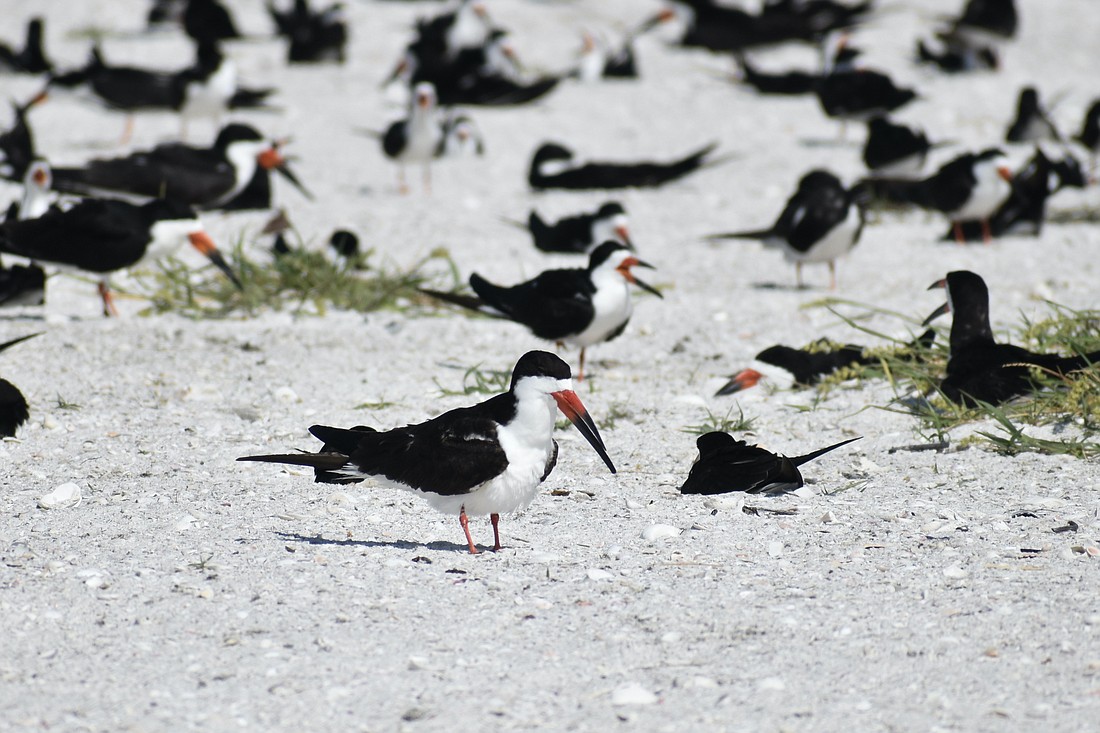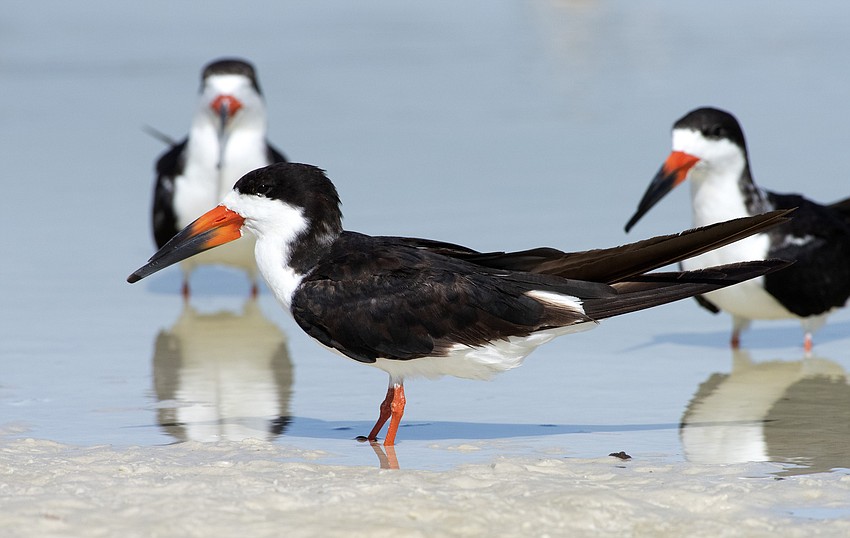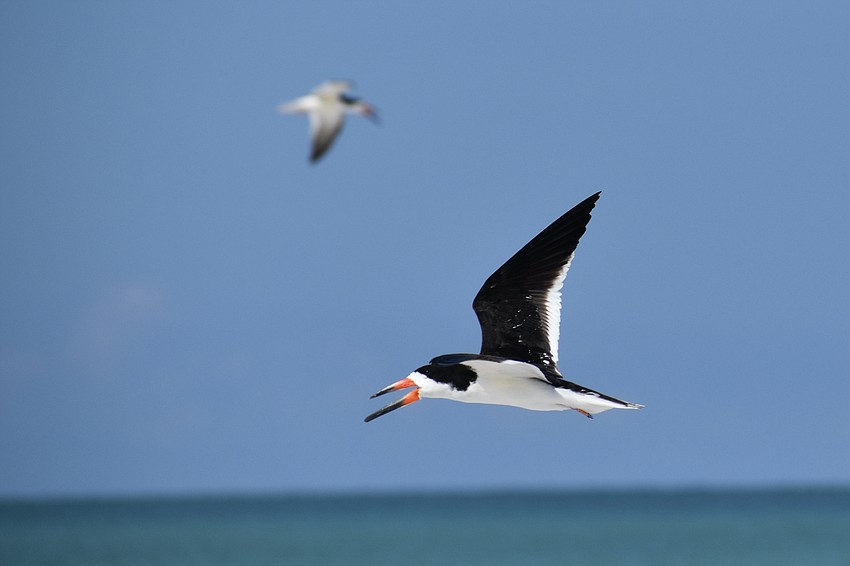- May 29, 2025
-
-
Loading

Loading

As beachgoers gather just south of Ted Sperling Park at South Lido Beach over Memorial Day weekend, they might find that they aren’t the first to lay claim to the site.
A colony of black skimmers relocated in early May from North Lido Beach, and also happens to be consistently one of the largest and most productive colonies of the seabird in Florida, said Kylie Wilson, shorebird coordinator with Audubon Florida.
She hopes that over the busy holiday weekend, everyone can share the beach with these animals, a protected species with an oversized lower bill, and ensure they remain out of harm’s way.
“They're out here trying to nest, trying to survive and reproduce. This is their home, and we come out here to have a good weekend,” she said.
Although the birds had been nesting in various areas of North Lido Beach since 2016, their young were repeatedly stolen by crows, one of their main predators.
As a result, they moved to the tip of South Lido Beach, a location Wilson said databases show they have not inhabited for about a decade, but where the colony appears to be doing very well with at least 300 nests and over 1,000 birds.
A 2020 beach renourishment project that pumped 200,000 cubic yards of sand from Big Pass sandbar onto the beach could have played a role, she said.
There are three main rules Wilson hopes beachgoers will observe. One is giving the birds space, which includes respecting the signage and rope she has placed around the nesting area near the shores.
However, she also wants the public to recognize that the birds remain protected outside the confines of the posted area, as they often leave to visit the shoreline.

Although the skimmers have grown used to human activity, they still need five to 10 feet of space, she said, and beachgoers should not walk through the areas where they are gathered. She said it is crucial that these mainly nocturnal animals can rest in order to better protect and raise their chicks, which she expects to hatch the week of May 29 or possibly sooner.
Second, she said it is important to avoid disturbances to the nesting area, which can come in many forms, but most often from dogs. The birds can mistake dogs, even those at a distance and on leashes, for predators, making the birds feel the habitat is unsuitable, she said.
Although city ordinances do not allow dogs on Lido Key Beach, she said the rule is frequently ignored.
"The birds have a pretty strong sense of self-preservation. All it takes is that one dog off-leash to run through this colony, and they might completely abandon,” she said, stating that this has occurred at sites in Pinellas County.

Furthermore, anytime the birds are flushed, or disturbed off their nests, it leaves their eggs and chicks vulnerable to predators, to the hot sun, and even to being killed by adult skimmers if they return to the wrong parent or nest.
If people are looking for places to take their dogs, she recommends Bird Key Park or Ken Thompson Park.
Wilson also offered other pointers.
Fireworks are a disturbance and are prohibited in the area. If people want to fly kites or drones, which look like predators to the birds, a 300-foot distance is a good general guideline — although any activity that disturbs the birds, no matter how far away, should be avoided. She said the birds are most bothered by drones that hover over their nesting area rather than simply passing by. If people throw beach balls, it should be done parallel to the nesting area, or 200 to 300 feet away.
Third, she said it is important for beachgoers to not leave trash or food behind, as well as to avoid feeding any birds on the beach. While trash can cause entanglement, food can attract predators, and feeding birds can result in a feeding frenzy that makes the chicks vulnerable to predation by other birds including seagulls.
“They would much rather eat a chick, because it’s a lot more nutritious and delicious than a Cheeto,” she said.
Wilson noted that there is no site for the skimmers where they can avoid sharing space with people.
“I just worry, if these birds can’t be safe here, where else will they go?” she said. “We just have to find a way to share the shore — save space for people, and for the birds.”
As Fourth of July comes around, she also hopes people will watch out for flightless chicks traversing the beaches.
“These guys are born super cute and ready to go, and once they're a little bit bigger will start to wander out of the posted area in search of shade, in search of a spot to cool off down at the water."
Correction: This article has been updated to use the corrected name Audubon Florida.